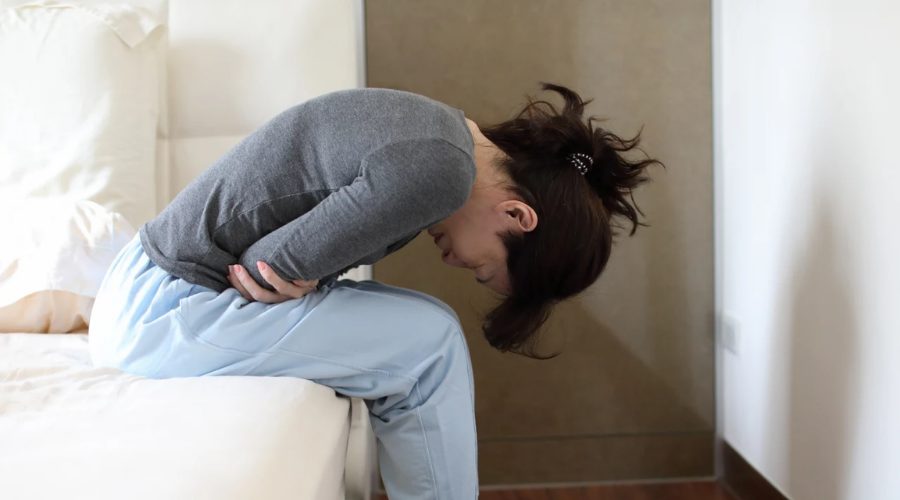The impact of IBD on a patient’s physical and mental health, social well-being, and financial stability are highly variable. Some patients had long periods of remission following their first treatments, while others struggled to find treatments that worked. Even though they don’t look sick, many people with IBD face insensitivity from the general public and even healthcare providers who have no idea what they’re dealing with when dealing with the disease. Many patients are reluctant to talk about their worries and anxieties because they don’t want others to know how they feel. This veil of secrecy increases the patient’s burden and feeds the myth that inflammatory bowel disease (IBD) is something the patient can control and can be handled by relieving stress, changing diet, and making lifestyle changes.
Patients face daily challenges because of a lack of public education about their illnesses. Therefore, in this article, you will gain knowledge all about IBD and how to live with it.
What is IBD?
Diseases that cause chronic inflammation in the intestine (pain and swelling) are called IBD (irritable bowel syndrome). Ulcerative colitis and Crohn’s disease are both types of inflammatory bowel disease.
It has often been considered an autoimmune disease. However, new research suggests that chronic inflammation may not be caused by the body’s immune system attacking it. A harmless virus, bacteria, or food in the digestive tract can cause inflammation, which in turn can lead to bowel damage.
Cause of Irritable Bowel Disease
Inflammatory Bowel Disease (IBD) has no known cause. Genetics, the immune system, and the environment may all play a role in causing inflammation in the gastrointestinal tract. Inflammatory bowel disease may be worsened by diet and stress, but these factors are unlikely to be the cause. It can have several lifestyle changes & effects on your life.
Families are more likely to have IBD. However, not everyone who suffers from IBD has a family history of it. It is possible to develop IBD at any age, but the disease is most commonly diagnosed in adolescents and young adults.
Symptoms of Irritable Bowel Syndrome
Depending on where and how severe the inflammation is, people with IBD may experience any or all of the following signs and symptoms:
- diarrhoea is when parts of the digestive tract are unable to properly absorb water
- bleeding ulcers, which may cause blood to be found in the stool (a disorder known as hematochezia)
- bloating, gas and cramping in the stomach are all symptoms of bowel obstruction
- obesity and anaemia, both of which can affect a child’s physical growth and development
- Crohn’s disease patients may also develop canker sores in their mouths. The genital area or anus can also be affected by ulcers and fissures.
Diagnosis
Your doctor will first ask you about your family’s medical history and the consistency of your bowel movements to make an accurate diagnosis of IBD.
One or more diagnostic tests may be administered after the patient has undergone a physical examination.
Blood Test and Stool Sample
Infections and other diseases can be detected through the use of stool samples and blood tests.
Blood tests can also be used to differentiate between ulcerative colitis (UC) and Crohn’s disease (CD). However, IBD cannot be diagnosed solely through blood tests.
Plain Film or X-rays
X-rays of the abdomen are used in cases of emergency and suspected intestinal rupture.
CT and MRIs
Computerized X-rays (CT scans) are what they sound like: They produce a more detailed image than a conventional X-ray. They can be used to examine the small intestine because of this. Complications of IBD can also be detected by them
MRIs use magnetic fields to create images of the body. They’re safer than X-rays because they don’t use radiation. MRIs are particularly useful in examining soft tissues and detecting fistulas. For a better understanding of the extent to which IBD has affected the intestine, diagnostic imaging modalities such as CT scans and MRIs can be used.
Treatment for Inflammatory Bowel Disease
IBD is treated with a combination of self-care and medical attention.
Personal Care
If you’ve been diagnosed with IBD, you may benefit from making dietary changes to help alleviate your symptoms. It’s essential to consult with your doctor about how to modify your diet while still ensuring that you get the necessary nutrients. The doctor may recommend that you reduce your intake of fibre or dairy products based on your symptoms. Also, regular and small portions of meals may be more manageable. You don’t need to avoid certain foods in general unless they cause or worsen symptoms for you.
Personal care includes learning how to cope with stress, which can exacerbate your symptoms. It’s a good idea to make a list of all the things that make you anxious, and then see if any of them can be eliminated from your daily schedule.
Joining a support group puts you in touch with others who understand the difficulties you face as a result of having inflammatory bowel disease (IBD). As a result, they can help you cope with symptoms and their impact on your mental and emotional well-being.
Medications
- Anti-inflammatory drugs – IBD treatment begins with the use of anti-inflammatory drugs. Inflammation in the digestive tract can be reduced with the help of these medications. However, there may have some side effects.
- Immune system suppressors – It may work in a variety of ways to reduce the body’s production of inflammatory chemicals. These chemicals can cause damage to the lining of the digestive tract when they are released.
- Biologics – Therapies that target inflammation-inducing proteins in the body are known as biologics, which are a relatively new type of therapy.
- Antibiotics – In cases of perianal Crohn’s disease, antibiotics from free pharmacy delivery may be used in combination with other medications or when an infection is a concern.
- Surgery – If lifestyle changes, medication, or other treatments do not alleviate your IBD signs and symptoms, your doctor might recommend surgery.
- Surgery for ulcerative colitis: The colon and rectum are completely removed during surgery, and an internal pouch attached to the anus is created to allow for bowel movements without the use of a bag.
- Crohn’s disease surgery: Approximately two-thirds of people with Crohn’s disease will require surgery at least once during their lifetime. But surgery doesn’t cure Crohn’s disease. During surgery, your surgeon separates a damaged section of your digestive tract from the healthy sections and then reconnects them. Additionally, surgery can be used to close fistulae and drain abscesses.
Living With IBD
Every aspect of your life will need to be examined if you want a long, healthy and happy life with IBD.
- Quit Smoking: Smoking can worsen your health.
- Avoid Alcohol: Alcohol can aggravate symptoms by irritating the lining of the digestive tract. Drugs you’re currently taking may also have the effects of this.
- Maintain a regular exercise regimen: IBD patients can benefit from both aerobic and resistance training. Regular physical activity not only improves digestion but can also alleviate stress.
- Get plenty of rest: Stress can exacerbate your symptoms if you’re already exhausted. Maintaining a consistent wake-up and bedtime schedule throughout the week, as well as on the weekends, will help you get a better night’s rest.
Check Out Our Blog:

